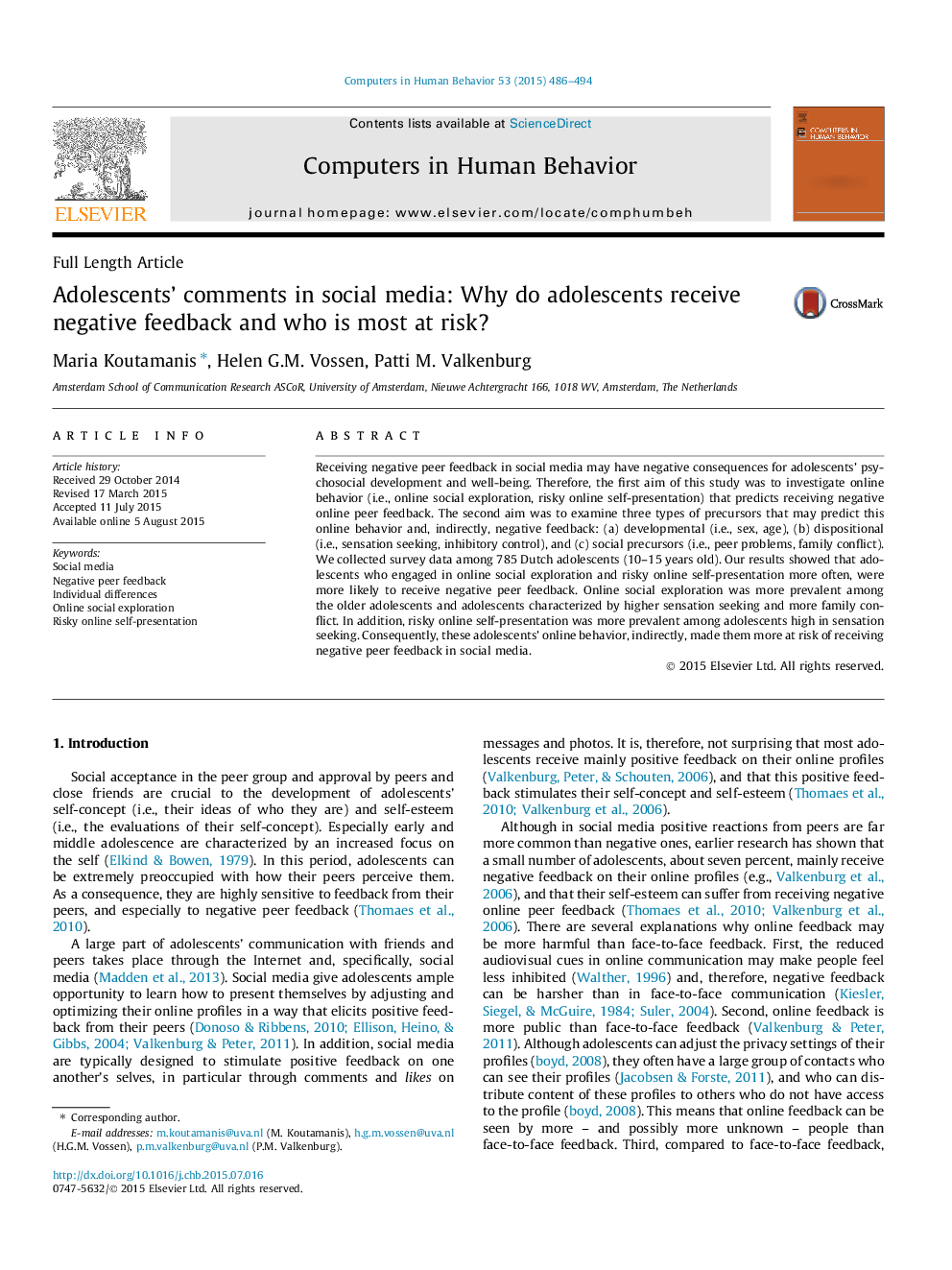| کد مقاله | کد نشریه | سال انتشار | مقاله انگلیسی | نسخه تمام متن |
|---|---|---|---|---|
| 350124 | 618430 | 2015 | 9 صفحه PDF | دانلود رایگان |
• We investigate which adolescents receive negative peer feedback in social media.
• Risky online behavior increased the risk of receiving negative feedback.
• Risky behavior was predicted by higher age, sensation seeking, and family conflict.
• These characteristics lead to negative feedback through risky online behavior.
• So, adolescents’ characteristics indirectly predicted receiving negative feedback.
Receiving negative peer feedback in social media may have negative consequences for adolescents’ psychosocial development and well-being. Therefore, the first aim of this study was to investigate online behavior (i.e., online social exploration, risky online self-presentation) that predicts receiving negative online peer feedback. The second aim was to examine three types of precursors that may predict this online behavior and, indirectly, negative feedback: (a) developmental (i.e., sex, age), (b) dispositional (i.e., sensation seeking, inhibitory control), and (c) social precursors (i.e., peer problems, family conflict). We collected survey data among 785 Dutch adolescents (10–15 years old). Our results showed that adolescents who engaged in online social exploration and risky online self-presentation more often, were more likely to receive negative peer feedback. Online social exploration was more prevalent among the older adolescents and adolescents characterized by higher sensation seeking and more family conflict. In addition, risky online self-presentation was more prevalent among adolescents high in sensation seeking. Consequently, these adolescents’ online behavior, indirectly, made them more at risk of receiving negative peer feedback in social media.
Journal: Computers in Human Behavior - Volume 53, December 2015, Pages 486–494
